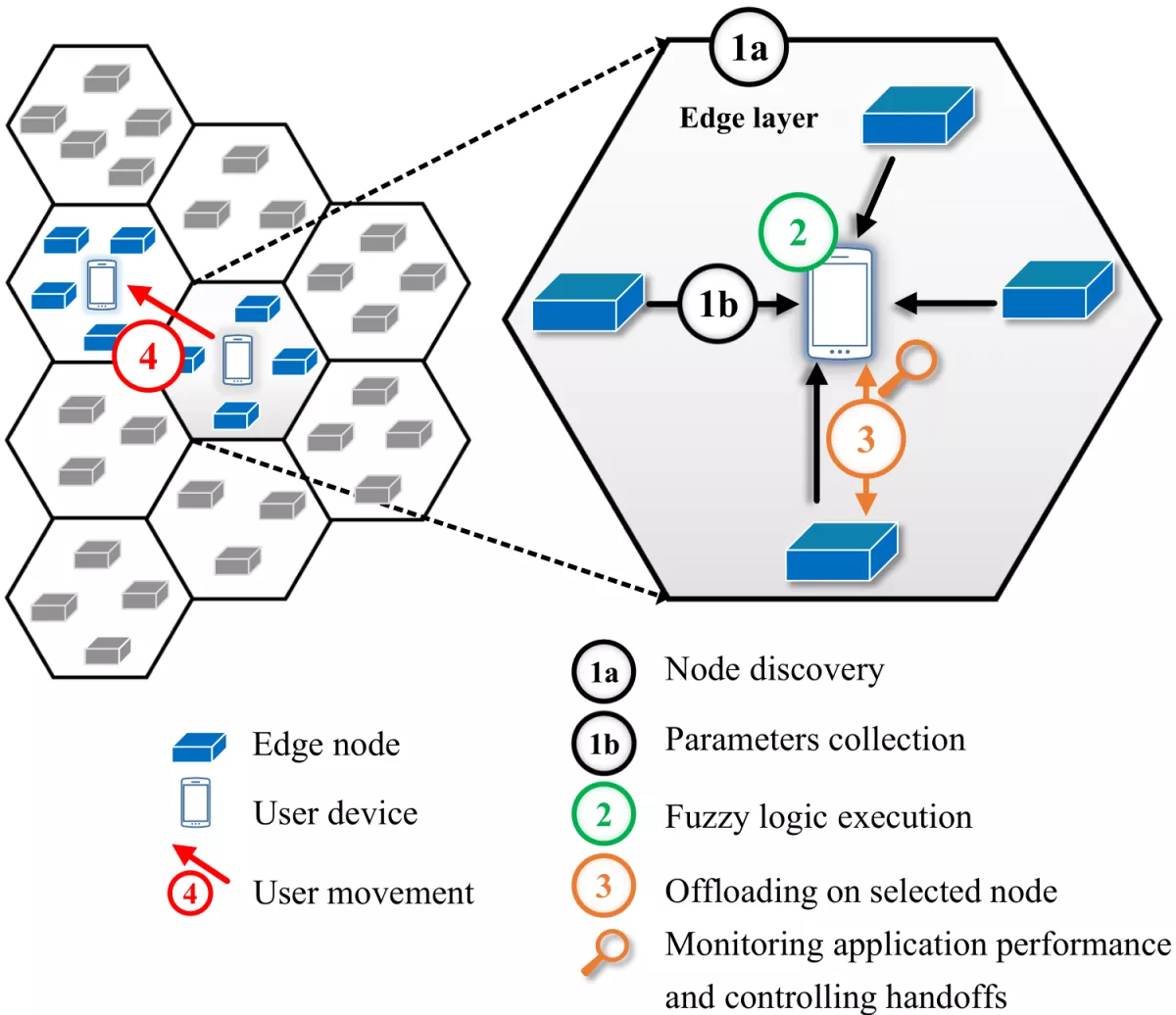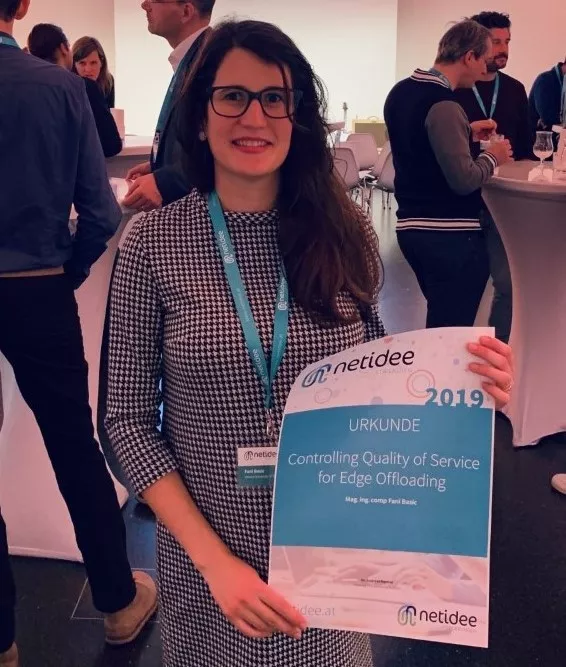
Förderjahr / / ProjektID: / Projekt: Edge node selection and handoff control
We answer the questions: “On which node should a task be offloaded for the execution?” and “Is it an appropriate moment to move execution to another node or not? ”.
These questions are answered in our publication [1], based on perceived application performance and monetary cost of execution. The main contributions of this paper are: (i) a fuzzy logic algorithm that selects a target node based on its bandwidth, processor and latency parameters; and (ii) a handoff controller that takes application RT as the indicator to decide whether to move the task execution to another node.
At the time we write, user mobility and consequently the handoffs among edge servers is an open research challenge. Handoff or handover techniques for cellular networks are not directly applicable, due to the intensive computation that has to be considered in edge offloading scenario.
Edge node selection
In sparse edge deployment the user has only one or few available edge nodes to connect at a nearby location, whereas in dense deployment, numerous location-aware edge nodes are tactically spread in many places (such as user residences and workplaces, streets, subway stations, shops...). Since these nodes can differ significantly in computation capabilities from each other, node nearest to the user is not always the best choice in terms of perceived response time (RT). Therefore, we consider the set of parameters jointly during this selection process in dense deployments, such as available bandwidth, processor speed, and latency. We use those parameters in the proposed fuzzy logic-based algorithm.
Handoff control
Once the edge node is selected, we still have to find solutions for the issues that lead to degraded application performance such as network congestion, node overload, failures, and user mobility. As the user is moving further from the currently selected edge node, next offloaded tasks on that node can have degraded performance far worse than physical distance may suggest. A process called handoff, that is offloading upcoming requests to a more suitable edge node in the vicinity, can be effective in such a scenario. However, frequent mobility of users causes frequent handoffs among edge servers and each handoff may bring initial monetary and time cost. For instance, each initialization of the task processing platform (e.g. container or virtual machine (VM)) incurs delays and expenses. In our mechanism, referred as the handoff controller, we use control theory to avoid the so-called ping-pong effect, in which subsequent tasks are transmitted back and forth between different edge servers in the surroundings.

Offloading model
Fig. 1 depicts the proposed offloading model. In step 1a, the user device starts the discovery of the edge nodes in one-hop proximity illustrated with hexagons. Discovered nodes send their actual bandwidth, processor and latency capacities to the user device in step 1b. Using these parameters, fuzzy logic is run in step 2 to offload tasks on the one selected edge node. During step 3, a controller perceives the RT of each application’s offloaded task. Upcoming tasks are continuously offloaded until the controller output falls below the permitted threshold affected by the error, i.e. the difference between the desired and the measured RT.
More technical details about the fuzzy logic and control theory used for the realization of the controller will be available in the next blog post, as well as the results overview.
[1] Fani Basic, Atakan Aral and Ivona Brandic. Fuzzy Handoff Control in Edge Offloading. IEEE International Conference on Fog Computing (ICFC 2019). Prague, Czech Republic, June 24-26, 2019.


